Therefore, education and training in the medical field must transform more strongly than ever - from the traditional model to training based on competencies, professional standards, and output standards; closely linking training with clinical practice and medical ethics.
Dr. Nguyen Ngo Quang - Director of the Department of Science, Technology and Training ( Ministry of Health ) emphasized this in his speech at the 9th National Medical Education Conference - 2025 with the theme " Medical education in the digital age - Opportunities and challenges ".
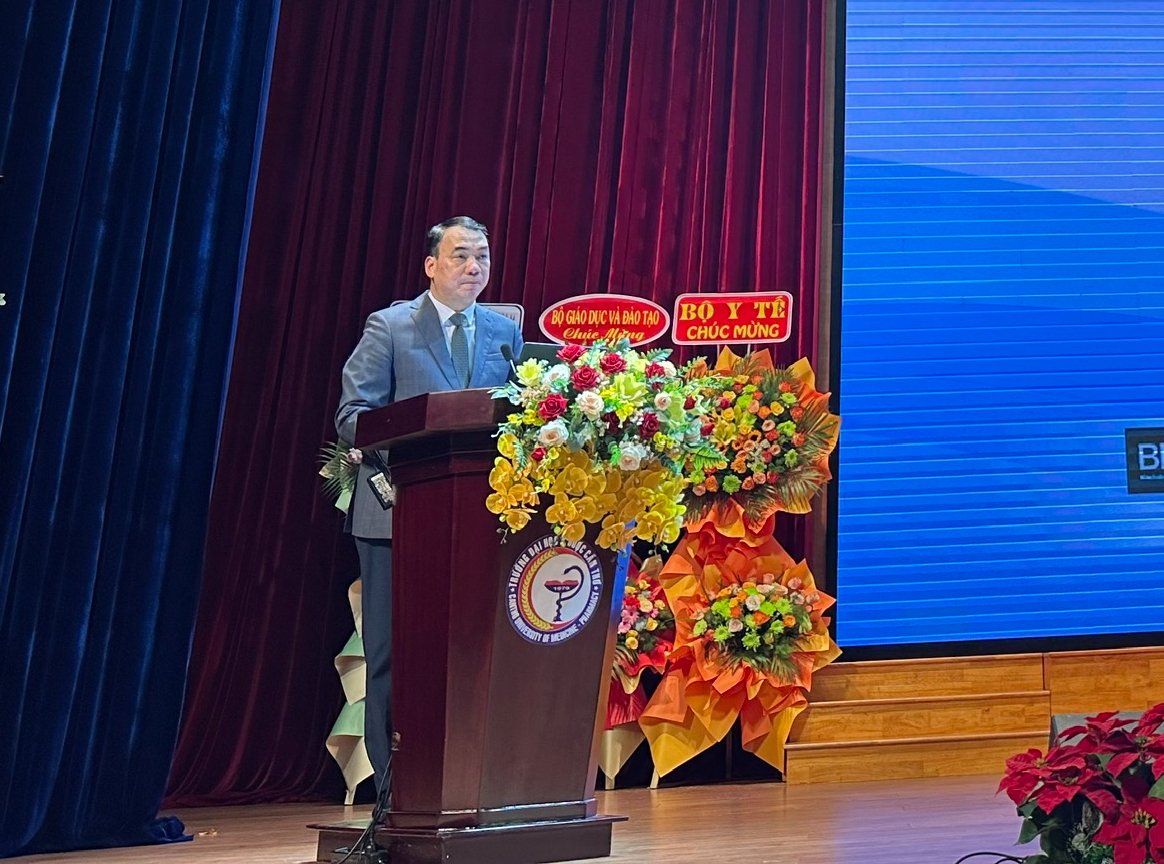
Dr. Nguyen Ngo Quang - Director of the Department of Science, Technology and Training (Ministry of Health ) spoke.
Convergence forum to share ideas on innovative training programs and advances in medical education
The conference, organized by the Vietnam Medical Education Association in collaboration with Can Tho University of Medicine and Pharmacy, focused on sharing ideas for innovative training programs, advances in medical education, and discussing technology application solutions to improve the quality of medical human resource training in the new context.
This year's conference has more than 300 scientific reports and many creative activities: thematic discussion sessions on digital transformation, capacity assessment, AI application in medicine; especially the Student Mock Session on "Artificial Intelligence in Medical Teaching and Learning", demonstrating the spirit of learning, creativity and responsibility of the young generation in the medical industry.
"This is a positive signal for the future of Vietnamese medical education - a generation of students who are not only good at their profession but also proactive in innovation, integration and have the desire to serve the community" - Dr. Nguyen Ngo Quang said.
Director Nguyen Ngo Quang assessed that the theme of this year's conference reflects the spirit of the times: digital transformation is no longer a trend but a vital driving force for medical education; artificial intelligence (AI), medical simulation, virtual reality, and big data systems are gradually changing teaching, learning, and assessment methods.
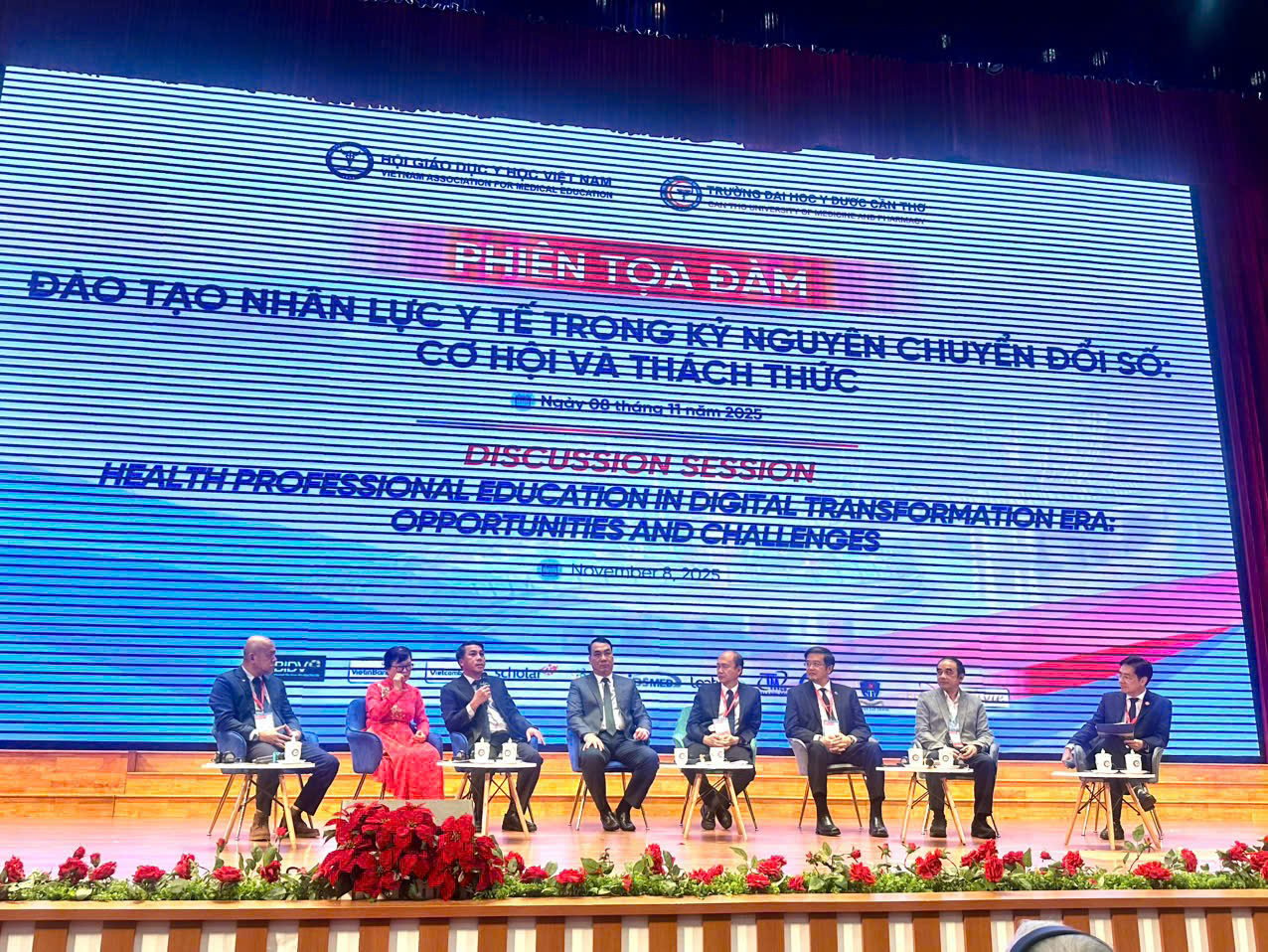
Delegates discussed in the discussion session with the topic: "Training medical human resources in the digital transformation era - Opportunities and challenges" at the conference.
At the conference, Director Nguyen Ngo Quang said that the Politburo recently issued Resolution No. 57-NQ/TW on breakthroughs in science and technology development, innovation and national digital transformation; Resolution No. 71-NQ/TW on breakthroughs in education and training development; Resolution No. 72-NQ/TW on a number of breakthrough solutions to strengthen the protection, care and improvement of people's health.
These are extremely important resolutions, with strategic vision, with strong breakthrough solutions to improve the quality of human resources, ensuring better access to health care for the people.
Many training institutions apply digital technology to teaching and assessing practical skills.
Dr. Quang said that recently, the Ministry of Health and the National Medical Council, together with schools, hospitals, and professional associations, have developed professional competency standards and a national framework for medical examination and treatment practice; implemented pilot exams to assess professional competency in the direction of international integration; applied AI, simulation technology, standard patients, and electronic exam platforms in assessment and evaluation; and gradually moved towards a National Exam on medical examination and treatment practice competency, ensuring transparency, objectivity, and standards.
Nowadays, many training institutions have pioneered the application of digital technology in teaching, simulating medical cases, training skills and assessing practical capacity.
"However, I note that in technology development and application, AI or any other technology cannot replace teachers but is only a tool for teachers and learners to use together to develop more effectively," said Dr. Quang.
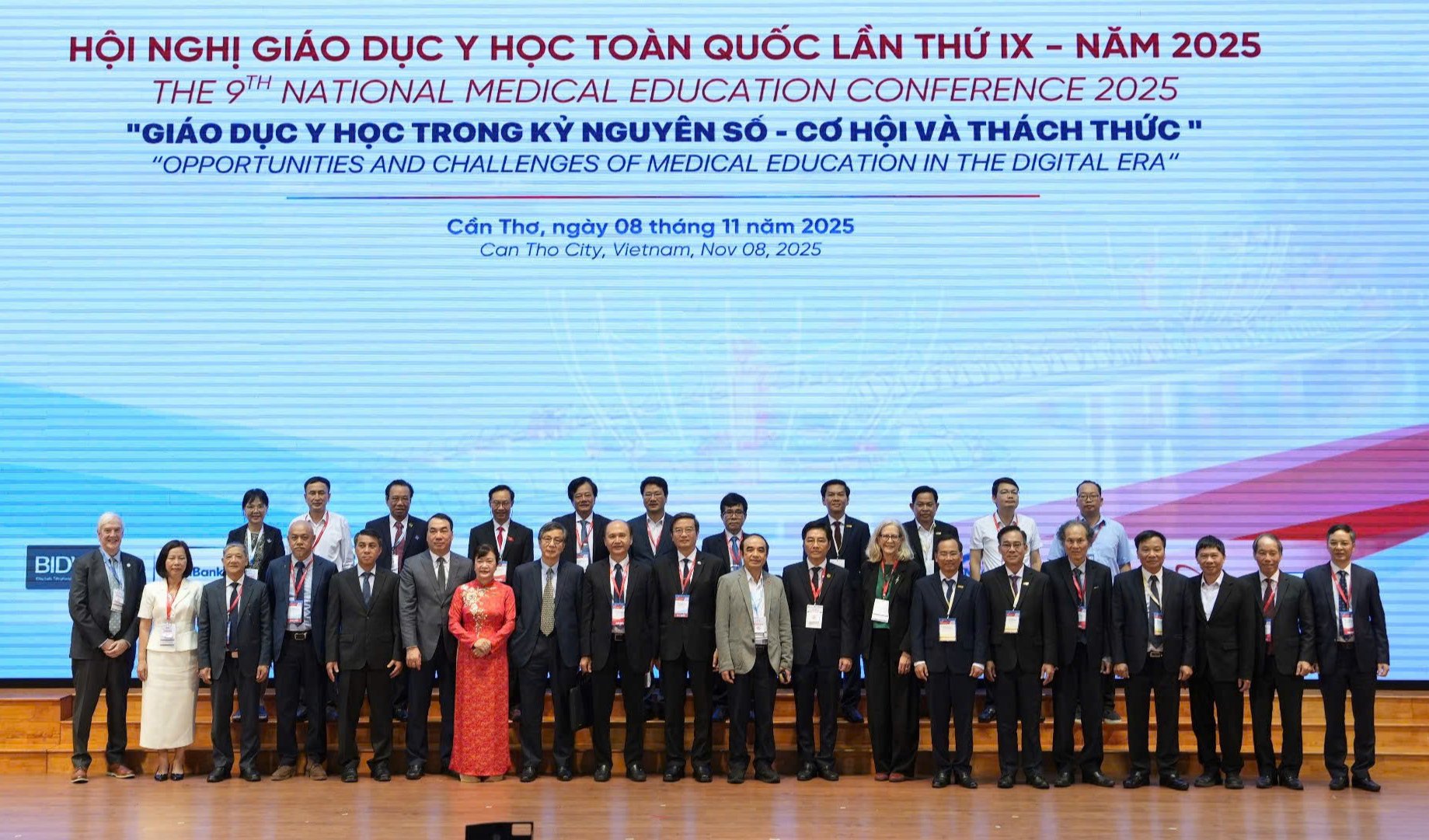
Managers, experts, domestic and international delegates attended the conference.
Informing the conference, Director Nguyen Ngo Quang said that an important highlight in the process of reforming Vietnam's medical education is the implementation of an exam to assess the capacity to grant a license to practice medical examination and treatment according to the Law on Medical Examination and Treatment (amended) in 2023.
This is a strategic turning point to standardize the quality of medical human resources, ensuring that practicing medical staff have sufficient knowledge, skills and professional attitudes according to national standards, while meeting the requirements of international integration.
"The Ministry of Health hopes that medical universities will closely coordinate with the Question Bank Toolkit Development Committee of the National Medical Council and the Department of Science, Technology and Training in building question banks, perfecting output standards associated with professional practice standards and enhancing clinical practice at hospitals, creating conditions for learners to be comprehensively trained" - Dr. Nguyen Ngo Quang said.
Attending the conference, representatives of medical training schools and hospitals all wanted to learn about the digital transformation technology application model, standards in assessment and granting of professional capacity of advanced countries...
Source: https://suckhoedoisong.vn/doi-moi-dao-tao-nhan-luc-y-te-ai-hay-bat-cu-cong-nghe-nao-khong-the-thay-the-nguoi-thay-169251108182653373.htm


![[Photo] Cutting hills to make way for people to travel on route 14E that suffered landslides](https://vphoto.vietnam.vn/thumb/1200x675/vietnam/resource/IMAGE/2025/11/08/1762599969318_ndo_br_thiet-ke-chua-co-ten-2025-11-08t154639923-png.webp)





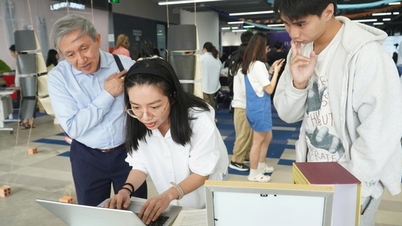








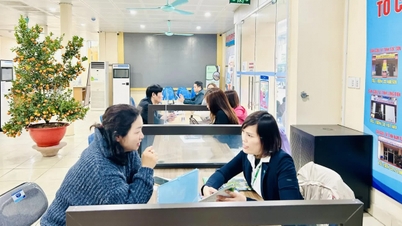

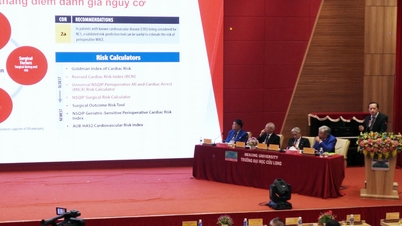

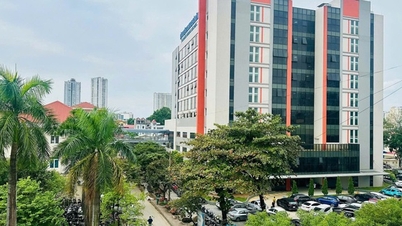
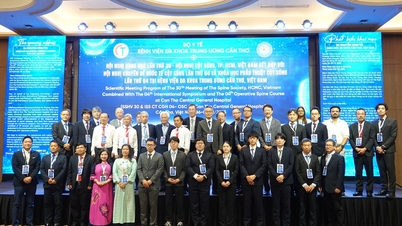







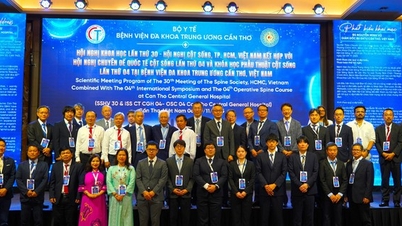





![[Photo] "Ship graveyard" on Xuan Dai Bay](https://vphoto.vietnam.vn/thumb/1200x675/vietnam/resource/IMAGE/2025/11/08/1762577162805_ndo_br_tb5-jpg.webp)







![[Video] Hue Monuments reopen to welcome visitors](https://vphoto.vietnam.vn/thumb/402x226/vietnam/resource/IMAGE/2025/11/05/1762301089171_dung01-05-43-09still013-jpg.webp)









































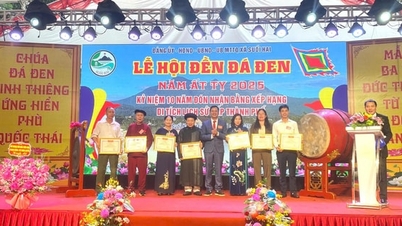





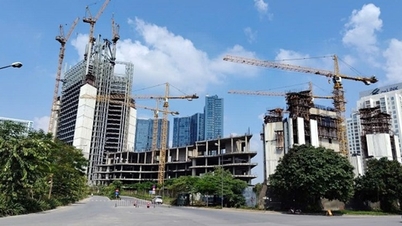


















Comment (0)